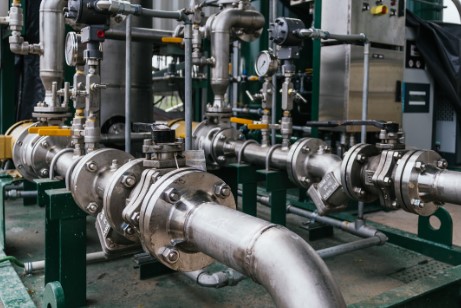How Does Pipe Insulation Improve Safety?
How Does Pipe Insulation Improve Safety?

In the dynamic and demanding environment of the oil and gas sector, safety is paramount. Every aspect of operations must be meticulously managed to ensure the well-being of workers and the integrity of equipment. One critical component that significantly contributes to safety is pipe insulation. In this article, we will explore the multifaceted ways in which pipe insulation enhances safety in the oil and gas industry.
1. Understanding the Importance of Thermal Insulation
Thermal insulation serves as a vital component in maintaining the efficiency and safety of industrial processes, particularly in the oil and gas sector. By effectively minimizing heat transfer, insulation helps to regulate fluid temperatures within pipelines. This not only prevents energy loss but also ensures that substances such as crude oil, natural gas, and various chemicals remain at optimal temperatures for transportation and processing. Additionally, by controlling thermal expansion and contraction, insulation helps to reduce mechanical stresses on piping systems, thereby extending their operational lifespan.
2. Preventing Heat-Related Accidents
Uninsulated or poorly insulated pipes pose significant risks of heat-related accidents in industrial environments. Workers may inadvertently come into contact with hot surfaces, leading to burns, scalds, or other injuries. By insulating pipes, companies can create a protective barrier that reduces the surface temperature of equipment, minimizing the risk of accidental contact and enhancing workplace safety. This is especially crucial in facilities where personnel are required to work in close proximity to piping systems or in confined spaces where heat dissipation is limited.
3. Mitigating Fire Hazards
In the event of a fire or thermal incident, properly insulated pipes can help to mitigate the spread of flames and heat. Insulation acts as a barrier, preventing the rapid transfer of thermal energy to adjacent structures or equipment. By containing the heat within the piping system, insulation provides valuable time for emergency response teams to intervene and prevent the escalation of fires. Additionally, insulation materials with fire-resistant properties can further enhance fire safety by inhibiting the ignition and propagation of flames.
4. Protecting Against Corrosion
Corrosion poses a significant threat to the integrity of piping systems in the oil and gas industry. Exposure to moisture, corrosive chemicals, and environmental contaminants can lead to the degradation of metal surfaces, increasing the risk of leaks, ruptures, and structural failures. Pipe insulation serves as a protective barrier, shielding vulnerable components from corrosive agents and extending their service life. By preventing corrosion-related damage, insulation helps to maintain the structural integrity of pipelines, reducing the likelihood of hazardous incidents and costly repairs.
5. Ensuring Personnel Safety in Extreme Conditions
Oil and gas operations often take place in environments characterized by extreme temperatures and weather conditions. From arctic regions with sub-zero temperatures to desert climates with scorching heat, workers face significant challenges in maintaining their safety and well-being. Properly insulated pipes help to mitigate the effects of temperature extremes by regulating the thermal environment within piping systems. This not only protects personnel from the adverse effects of extreme heat or cold but also ensures the reliable operation of equipment and processes under challenging environmental conditions.
6. Safeguarding Equipment and Infrastructure
In addition to protecting personnel, pipe insulation plays a crucial role in safeguarding equipment and infrastructure from thermal damage and mechanical stress. Thermal insulation helps to maintain the structural integrity of piping systems by minimizing temperature fluctuations and thermal cycling. This reduces the risk of metal fatigue, stress corrosion cracking, and other forms of mechanical degradation, thereby extending the operational lifespan of pipelines, vessels, and other critical components. By preserving equipment integrity, insulation contributes to the overall reliability and efficiency of oil and gas operations.
7. Compliance with Regulatory Standards
The oil and gas industry is subject to stringent regulatory requirements aimed at ensuring the safety and environmental responsibility of operations. Regulatory agencies impose standards and guidelines governing the design, construction, and operation of industrial facilities, including requirements for thermal insulation. Compliance with these regulations is essential for companies to obtain permits, licenses, and certifications necessary for conducting business in the sector. By implementing proper insulation practices, companies can demonstrate their commitment to meeting regulatory standards and protecting the health and safety of workers and the environment.
- Enhancing Operational Reliability
Operational reliability is a critical consideration for oil and gas companies seeking to maintain continuous production and minimize downtime. Unplanned equipment failures, shutdowns, or safety incidents can have significant financial and reputational consequences for operators. Pipe insulation contributes to operational reliability by reducing the likelihood of equipment failures related to thermal stresses, corrosion, or environmental factors. By enhancing the resilience of piping systems, insulation helps to minimize the risk of disruptions to production schedules and ensure the smooth functioning of oil and gas facilities.
9. Minimizing Environmental Risks
Environmental stewardship is increasingly important in the oil and gas industry in Clairmont, Alberta where operations can have significant impacts on ecosystems and natural resources. Pipe insulation plays a role in minimizing environmental risks by preventing leaks, spills, and emissions from piping systems. Insulated pipelines are less susceptible to corrosion and mechanical damage, reducing the likelihood of releases of hazardous substances into the environment. Additionally, by optimizing energy efficiency and reducing heat loss, insulation helps to minimize the carbon footprint and environmental footprint of oil and gas operations, supporting sustainability initiatives and regulatory compliance.
Conclusion:
The safety of workers, the integrity of infrastructure, and environmental protection are all paramount concerns in the oil and gas sector. Pipe insulation emerges as a critical safety measure that addresses these concerns comprehensively. By understanding its importance and investing in quality insulation solutions, companies can create safer, more efficient, and sustainable operations for the future.




